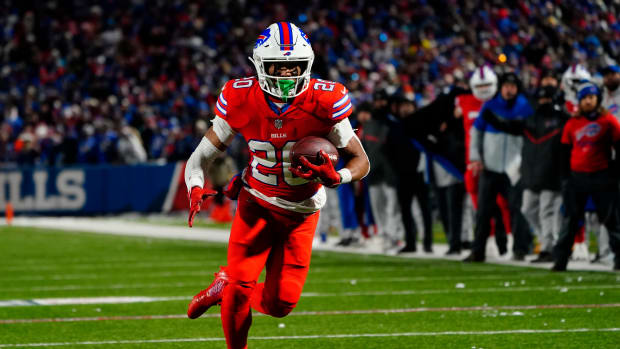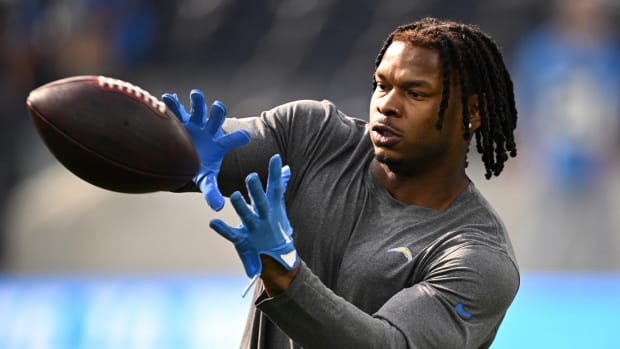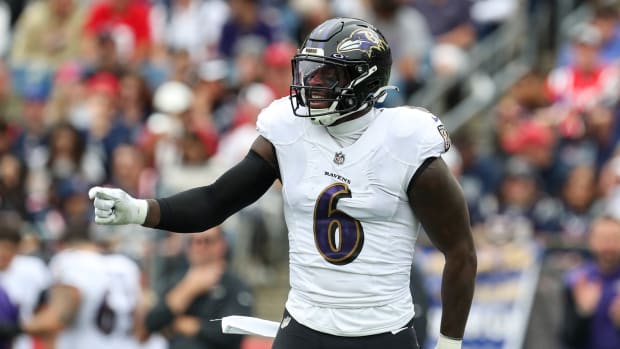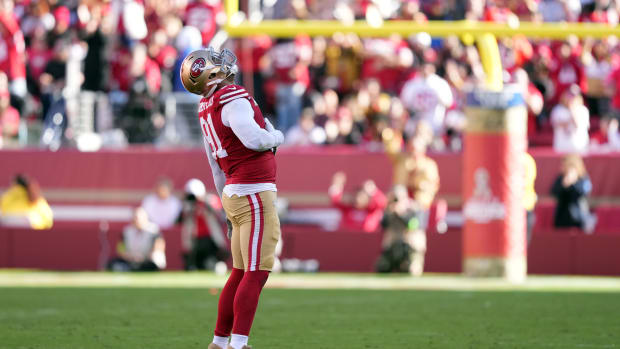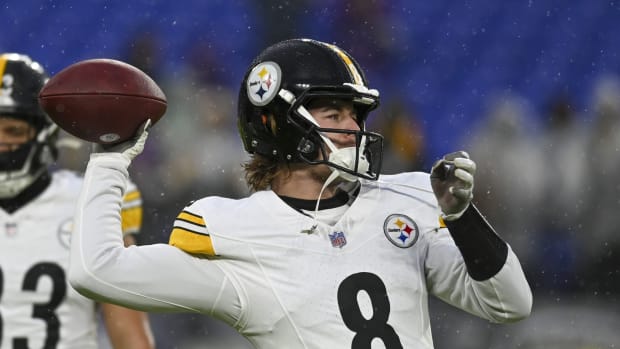The (Other) Pro Bowl Problem
Before touching on this week’s topics of note, a word about The MMQB colleague Richard Sherman and his now-famous rant following the Seahawks win on Sunday. I sense Sherman is shrewd enough to know how to draw a national reaction, and keep the conversation going far beyond the hours-long cycle that defines news today.
Much has been said already about Sherman, but here are a couple thoughts from experience. First, the raw and unfiltered emotion by Sherman is noteworthy more for its rarity than its content; many players think they are superior to their competitors, especially after winning individual battles, but few express it. Sherman’s words about Crabtree, which he continued to own in his column here, were refreshingly candid in an age of scripted clichés from athletes. Whether one agrees or not with his views on Michael Crabtree (who I think is a difference-making receiver), we saw unique outspokenness.
The episode illustrated the reason for the "cooling off period" after games before the media is allowed to enter locker rooms: to allow players' emotions to diffuse in the sanctuary of the locker room away from public view. Of course, that "cooling off period" does not apply to post-game interviews on the field.
Finally, in my experience, the team position groups that were most difficult to manage were defensive line and defensive backs. They consistently had the most issues both off the field and internally with coaches, and sometimes even other players. In talking with colleagues from other teams then and now, they agree. There is no generalized answer as to why, but one thought: we ask these players to engage in 65-70 street fights per game, the more vicious the better, and then want them to be model citizens after the game. This is not to rationalize Sherman’s angry rant; rather, to point out the dichotomy of his job on and off the field.
Regardless, I am glad to have fellow Stanford grad Sherman and his raw commentary on our team here at The MMQB.
Now to some topics I found interesting this week ...
The Pro Bowl problem
And now a different view of this week’s Pro Bowl. Although there is a new format, the "Pro Bowl Problem," as I call it, has not changed. Players, especially players playing in the game for the first time, can become emboldened with an inflated sense of self. In managing player contracts, I always dreaded the weeks following the Pro Bowl.
First, as to the actual money received for playing in the Pro Bowl, it is not insignificant. This year, players on the losing team will make $26,000, whereas winning shares are $53,000 (players playing in the first two round of the playoffs made less than players on the losing team in the Pro Bowl). As to Super Bowl participants selected to the Pro Bowl under this new format without conference affiliation, they will earn $39,500, the midpoint amount between the winners and losers shares.
(Marco Garcia/AP)
As to contractual Pro Bowl bonuses, language usually requires that the player is "selected on the original ballot" to the game, foreclosing any claim for bonuses for the many players named to the game as alternates.
Now the "problem": with the top echelon of NFL talent all gathered in one place, there is a toxic mix of people around these star players. I call them the "Whisper Crews": agents, financial managers, marketing reps, advisors, enablers, family members, sycophants, groupies, etc. whispering in players’ ears about the need for better treatment from their team, their agent, their marketing rep, their wife, their girlfriend (or both), etc. The clear point made to the player is that they need a change in their lives, usually one that the member of the Whisper Crew should be a part of.
Player agents are ubiquitous at the Pro Bowl, mostly "playing defense" against agents known as poachers: those who creatively find ways to visit players who are not (yet) clients, using their significant powers of persuasion, sometimes accompanied by striking women.
The Pro Bowl atmosphere plays on the emotions and heartstrings of top NFL players. In all of my dealings with athletes, I keep this mantra in mind: never underestimate the power of ego and insecurity. They are powerful emotions.
As I regularly experienced, players will return to the mainland with newfound stances about their ability and, often, post-Pro Bowl contract discontent. Teams around the league will be having some difficult conversations starting next week.
A football life
January is the season for coaching transition in the NFL, when coaches disembark from what I call the six-month "submarine tour" they boarded in late July and come ashore to view the shifting horizon. Head coaches are fired and hired, and staffs are reshuffled, culminating at this week’s Senior Bowl—a job fair for coaches seeking continued or renewed employment. After this week, the game of musical chairs will end, with those unable to find a seat waiting until next year.
(Jeff Hanisch/USA Today Sports)
Beyond the usual turnover, however, a different type of coaching transaction caught my eye. Kevin Greene, the Packers’ outside linebackers’ coach, resigned from the Packers to spend more time with his wife and two teenage children. In a profession where people often find it difficult to imagine doing anything else, Greene’s decision is noteworthy. It also resonates personally, albeit under different circumstances. I also left the Packers, six years ago this week, and now lead a life more under my own terms, with family in mind.
I don’t know Kevin Greene—we were not in Green Bay at the same time—but I have seen the atmosphere where one can become consumed with football, both internally and externally. Many people involved in NFL team operations have "football lives," often to the exclusion of other interests. They think and talk about football when they eat, when they drive and even when they are at home. Some find it hard to be truly "present" with their families.
These football lives take on regimentation similar to players, but with longer hours and less pay. I regularly saw coaches and scouts use the team facility for their meals, their laundry, their workouts, even their wardrobe, wearing team-issued gear wherever they went. Social time is largely with others leading similar lives. As for family time, it can come in fits and starts.
Although as a front office executive I did not have the all-consuming life coaches and scouts did, my family still felt the impact. My sons, who were quite young when I was with the Packers, saw football as something that took me away from them, especially on the weekends, and we could never actually watch a game together as I worked during home games and traveled with the team. We now cherish watching games together.
Greene was with the Packers for five years, I was there nine years, the same length of time as my first boss, general manager Ron Wolf (and two years longer than Mike Holmgren). When Ron retired, I remember saying he felt "the walls were closing in" and grew to understand that comment.
Packers fans are warm-hearted people without pretense or edge and the Green Bay community is very welcoming; we made some wonderful life-long friends. Yet at times, it became hard to talk about topics beyond the team. I remember pumping gas and being tapped on the shoulder and asked, How’s that Donald Driver contract going? or being asked everywhere I went about Brett, Aaron or some other part of the team. And I was not even a coach or player; they felt it much more than I. The constant encirclement and year-round consumption of the Packers, although a special relationship, led to feeling, as Ron said, like the walls were closing in. I sense Greene felt that as well.



































